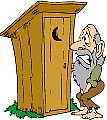Neck position during sleep
Neck position during sleep
It was suggested to me by another poster that ones neck position has a bearing on sleep apnea. In doing some daytime testing I was able to obstruct my airways even at a pressure of 20 by bringing the chin closer to the chest....big pillow. When I layed on my back with no pillow....to keep the neck essentially straight...I was not able to obstruct the airways. Has anyone else ever heard of the neck position being a factor in obstruction?
-
Wulfman...
Re: Neck position during sleep
Absolutely! Even before I started PAP therapy, I ran across an article on the Internet that mentioned it (head/neck postion). I'm sorry I didn't save it.track wrote:It was suggested to me by another poster that ones neck position has a bearing on sleep apnea. In doing some daytime testing I was able to obstruct my airways even at a pressure of 20 by bringing the chin closer to the chest....big pillow. When I layed on my back with no pillow....to keep the neck essentially straight...I was not able to obstruct the airways. Has anyone else ever heard of the neck position being a factor in obstruction?
Anyway, every night when I'm getting "situated" on my pillow, I try to make sure my head is tilted slightly backwards to try to keep my airway in a straighter line. (and I'm a side-sleeper, by the way)
I have no idea how long I stay in that position after I go to sleep, but at least that's the way I start out.
Den
As if cpapers don't have enough gadgets to wear during sleep but something like one of those neck braces that keeps the chin up might pay dividends. I might try to rig something up that keeps the neck straight or chin up...without strangling myself in my sleep. Maybe a chin strap attached to the headboard...in a semi hanging position only while laying down.LOL
Neck position
On occasion my mouth drops open and I mouth breathe, but not often enough to be encumbered with a chin strap or taping every night. I support my chin sometimes with one of those C-Shaped squishy travel pillows that are supposed to support the back of your neck. Just wear it reversed and the chin can't fall. Haven't quite got used to it enough to be consistent though. Could be of help for the topic of this thread also.
Kathy
Kathy
_________________
| Mask: TAP PAP Nasal Pillow CPAP Mask with Improved Stability Mouthpiece |
| Humidifier: S9™ Series H5i™ Heated Humidifier with Climate Control |
| Additional Comments: Bleep/DreamPort for full nights, Tap Pap for shorter sessions |
My SleepDancing Video link https://www.youtube.com/watch?v=jE7WA_5c73c
-
split_city
- Posts: 465
- Joined: Mon Apr 23, 2007 2:46 am
- Location: Adelaide, Australia
Here's an abstract from a poster presented in San Fran earlier this year:
The Influence of Head Position on Collapsibility of the Hypotonic Upper Airway.
J.H. Walsh, BSc., MSc., PhD., K.J. Maddison, BSc.(hon, D.L. Philippe, BSc.(hon, P.R. Platt, MBBS, FA, D.R. Hillman, MBBS, FA, P.R. Eastwood, BSc., Ph, Perth, Australia
Introduction: Altering head posture during sleep, independently of body posture, may influence the collapsibility of the upper airway (UA). However study of collapsibility during sleep is difficult due to the confounding effects of UA muscle activity. This study examined the effect of head posture on UA collapsibility during propofol anesthesia, under which condition UA activity is abolished.
Methods: Twelve volunteers (6 males) were anesthetised with propofol (effect site concentration, 4-6gml-1). Collapsibility of the hypotonic upper airway was determined by lowering CPAP mask pressure in a step-wise fashion to elicit variable degrees of flow limitation and the relationship between flow and pressure examined. Collapsibility was defined as the pressure at which inspiratory flow was abolished and airway occluded, the critical closing pressure (Pcrit). Pcrit was measured with the head neutral (NEU), flexed by 10 (FLEX), extended by 20 (EXT) and rotated by 40 (ROT).
Results: Relative to Pcrit when NEU (0.471.34 cmH2O), Pcrit increased when FLEX (4.331.19 cmH2O, p<0.05) indicating increased collapsibility, decreased when EXT (-7.401.89 cmH2O, p<0.05) indicating decreased collapsibility, and was unchanged when ROT (-2.671.14 cmH2O).
Discussion: Collapsibility of the hypotonic UA varies markedly with changes in head posture, being more susceptible to collapse when flexed and less susceptible when extended. These findings indicate that head position (i) should be controlled during studies of UA collapsibility, and (ii) may play an important role in the propensity for the UA to collapse during sleep, independently of body position.
The Influence of Head Position on Collapsibility of the Hypotonic Upper Airway.
J.H. Walsh, BSc., MSc., PhD., K.J. Maddison, BSc.(hon, D.L. Philippe, BSc.(hon, P.R. Platt, MBBS, FA, D.R. Hillman, MBBS, FA, P.R. Eastwood, BSc., Ph, Perth, Australia
Introduction: Altering head posture during sleep, independently of body posture, may influence the collapsibility of the upper airway (UA). However study of collapsibility during sleep is difficult due to the confounding effects of UA muscle activity. This study examined the effect of head posture on UA collapsibility during propofol anesthesia, under which condition UA activity is abolished.
Methods: Twelve volunteers (6 males) were anesthetised with propofol (effect site concentration, 4-6gml-1). Collapsibility of the hypotonic upper airway was determined by lowering CPAP mask pressure in a step-wise fashion to elicit variable degrees of flow limitation and the relationship between flow and pressure examined. Collapsibility was defined as the pressure at which inspiratory flow was abolished and airway occluded, the critical closing pressure (Pcrit). Pcrit was measured with the head neutral (NEU), flexed by 10 (FLEX), extended by 20 (EXT) and rotated by 40 (ROT).
Results: Relative to Pcrit when NEU (0.471.34 cmH2O), Pcrit increased when FLEX (4.331.19 cmH2O, p<0.05) indicating increased collapsibility, decreased when EXT (-7.401.89 cmH2O, p<0.05) indicating decreased collapsibility, and was unchanged when ROT (-2.671.14 cmH2O).
Discussion: Collapsibility of the hypotonic UA varies markedly with changes in head posture, being more susceptible to collapse when flexed and less susceptible when extended. These findings indicate that head position (i) should be controlled during studies of UA collapsibility, and (ii) may play an important role in the propensity for the UA to collapse during sleep, independently of body position.
- Flying_Norseman
- Posts: 321
- Joined: Fri Sep 07, 2007 7:14 pm
Absolutely...learned from CPR too. I have used a rolled up towel under the back of my neck when I sleep on my back. Unfortunately, I don't stay on my back.
Now I am wondering, if one of those neck braces, you can buy at Walmart, will help. Likely not comfy but neither was the mask, eh?
GumbyCT
Now I am wondering, if one of those neck braces, you can buy at Walmart, will help. Likely not comfy but neither was the mask, eh?
GumbyCT
_________________
| Humidifier: HC150 Heated Humidifier With Hose, 2 Chambers and Stand |
| Additional Comments: New users can't remember they can't remember YET! |
BeganCPAP31Jan2007;AHI<0.5
I have no doubt, how I sleep affects every waking moment.
I am making progress-NOW I remember that I can't remember

If this isn’t rocket science why are there so many spaceshots?
Be your own healthcare advocate!
I have no doubt, how I sleep affects every waking moment.
I am making progress-NOW I remember that I can't remember
If this isn’t rocket science why are there so many spaceshots?
Be your own healthcare advocate!
-
wabmorgan
- Posts: 395
- Joined: Sat Apr 29, 2006 10:46 pm
- Location: Southfork Ranch, Braddock County, Texas ;-)
- Contact:
I use to sleep with two pillows as well... until I realize that was probably not helping my OSA.
I haven't been able to sleep flat on my back in years..... just feels unconfotable and hence the two pillows.
My final solution was a multi-postion bed. It rasies you from the back up rather than just the neck.
I don't know how much this helped.... but it must have helped some.
I haven't been able to sleep flat on my back in years..... just feels unconfotable and hence the two pillows.
My final solution was a multi-postion bed. It rasies you from the back up rather than just the neck.
I don't know how much this helped.... but it must have helped some.
here's one comparing RDI from supine position to lateral position:
http://www.chestjournal.org/cgi/reprint/112/3/629.pdf
http://www.chestjournal.org/cgi/reprint/112/3/629.pdf
someday science will catch up to what I'm saying...
-
split_city
- Posts: 465
- Joined: Mon Apr 23, 2007 2:46 am
- Location: Adelaide, Australia
[quote="Snoredog"]here's one comparing RDI from supine position to lateral position:
http://www.chestjournal.org/cgi/reprint/112/3/629.pdf
http://www.chestjournal.org/cgi/reprint/112/3/629.pdf
-
Wulfman...
-
Baxter
Re: Neck position during sleep
I recently had my second sleep study. With my own mirage swift nasal pillow interface mask. I was surprized to find out I slept great. At home I'm up every two hours. The Doctor could not figure it out. The mask technician did. Turns out the large, thick, uncomfortable pillows jammed my chin into my chest and kept my mouth from opening which dumps the cpap pressure. I wake up 96 times an hour without cpap. Back to the neck position. I can't lay on my back with my head straight,I have to turn left or right a little to open the air passage. If I breathe in and out while lowering my chin you can hear the restriction start. The recliner is where I get the most rest,sleep what's that?
The one that gets me is falling asleep in the recliner. The way the back is shaped my head is a lot more forward than in my bed. I have noticed if I put the mask on in the recliner because I fall asleep so much watching stimulating TV it always records more apneas than when I am in my bed.
_________________
| Humidifier: HC150 Heated Humidifier With Hose, 2 Chambers and Stand |
| Additional Comments: 11cm/H2O, Encore Pro 1.8i, Pro Analyzer, Encore Viewer1.0 - 3 Remstar Pro2's, 1 Remstar Auto |
Life's journey is not to arrive at the grave safely in a well preserved body, but rather to skid in sideways, totally worn out, shouting: "Wow what a ride!"
I still play Cowboys and Bad Guys but now I use real bullets. CAS
I still play Cowboys and Bad Guys but now I use real bullets. CAS












